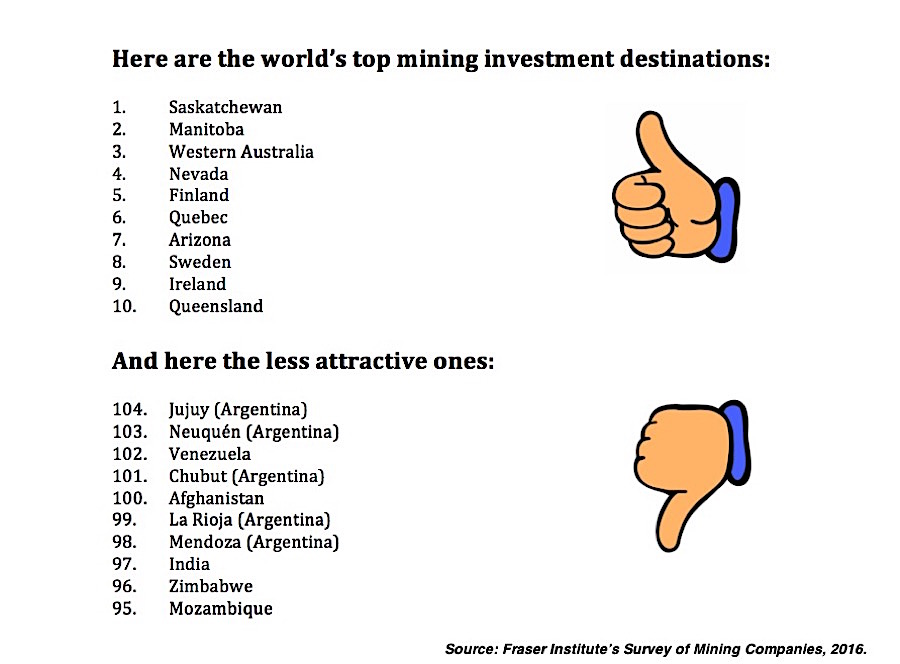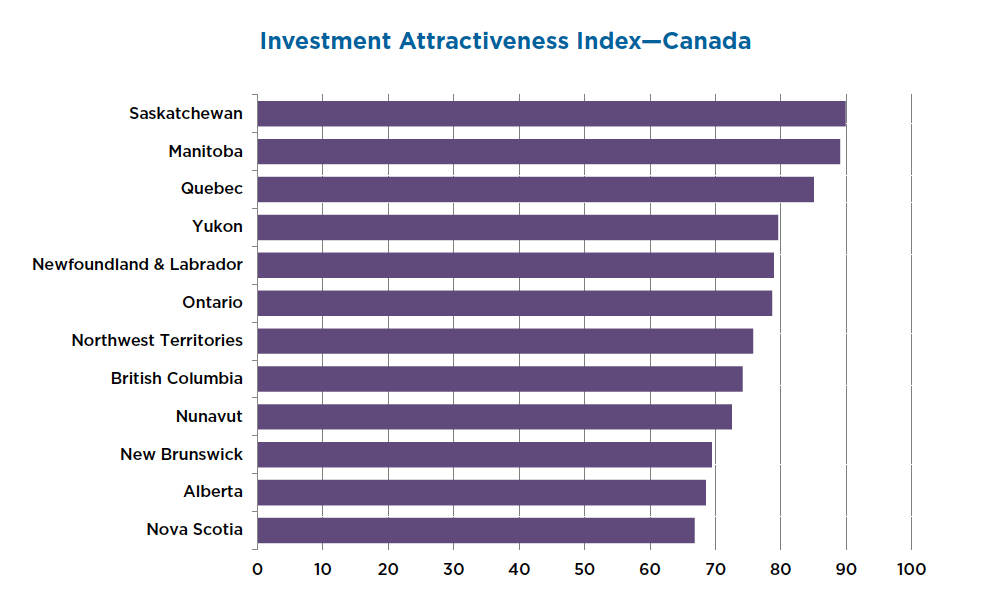Canada's Saskatchewan and Manitoba are the world's new top mining destinations
Two Canadian provinces - Saskatchewan and Manitoba - are the world's top two most attractive mining investment destinations, displacing Western Australia from the first to the third place, the latest annual global survey of mining executives released Tuesday by the Fraser Institute shows.
According to Canada's policy think-tank's Annual Survey of Mining Companies, the other seven jurisdictions that currently attract the most investors to their resources sector are the US state of Nevada, Finland, the Canadian province of Quebec, the US state of Arizona, Sweden, Ireland, and the Australian state of Queensland, in that order.
Within Canada, Saskatchewan remains the top-ranked province, though Quebec is showing clear signs of improvement. It now ranks third in the country and 6th globally - up from 8th spot last year - and is the only other Canadian jurisdiction in the top 10 worldwide for overall investment attractiveness.


Saskatchewan's leading position can be partially explained by its richness of mineral reserves, coupled with competitive tax regimes, efficient permitting procedures and certainty surrounding environmental regulations, said Kenneth Green, senior director of the Fraser Institute's energy and natural resource studies and co-author of the survey.
Chile, until recently an undisputed miners' darling, tumbled in the rankings from the 11th place to the 39th position, ranking now way below Peru.The opposite can be said of two of Canada's other large jurisdictions - British Columbia and Ontario - which dropped in this year's rankings. Internationally, Ontario places 18th (down three spots from last year) and B.C. ranks 27th, more than ten places lower than its 2015 position (18th).
When it comes to Latin America, the survey - which ranked 104 jurisdictions around the world based on geologic attractiveness and the extent government policies encourage or deter exploration and investment - shows some surprises.
Chile, until recently an undisputed miners' darling, tumbled in the rankings from the 11th place it held in 2015 to the 39th position and currently ranks below Peru, which occupies the 28th place.
While it's difficult to single out what caused Chile's big drop in the ranking, Taylor Jackson, senior policy analyst with the Fraser Institute and co-author of the study, noted that respondents seemed concerned about the country's tougher and more uncertain environment protection rules. They also appeared more critical of Chile's geological potential.
Argentina continued to fall in the eyes of mining investors, with five provinces now at the very bottom of the ranking. Two of them - Jujuy and Neuquen - are now ranked even below Venezuela.
In contrast, Africa continued to better its performance, a trend that began in 2012, buoyed by Ivory Coast (17th), Botswana (19th) and Ghana (22nd). As a region, Africa now ranks ahead of Oceania, Asia, Latin America and the Caribbean and Argentina for its investment attractiveness.
Permit times
The Fraser Institute also released a separate study examining issues surrounding the exploration permitting process.
Canadian provinces grant the necessary permits to explorers faster than in other international jurisdictions.It found that, overall, Canadian provinces grant the necessary permits to explorers faster than in other international jurisdictions.
But there is still room for improvement, the report notes, especially in the Territories and BC, with Canada's most westerly province performing worse than Ontario and Quebec when it comes to waiting times, transparency of the permitting process, and the confidence that explorers have that they will receive their permits at all.
"Time is money, and if permit approval times are unnecessarily long or lack transparency, confidence plummets, overall costs increase and investors will take their money elsewhere," concludes Green.


Source: The Fraser Institute's Survey of Mining Companies, 2016.